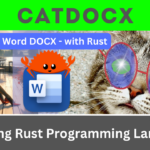Automate Docx creation with Rust
Using Docx-rs we can write some code and compile it to allow us to create Word document (Docx) files using text and images that the user is able to specify either via command line or via a script (e.g Python). How does it work? Using compiled Rust code, and a Rust crate called docx-rs you […]









